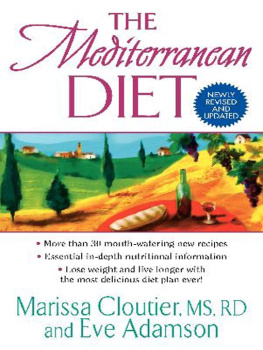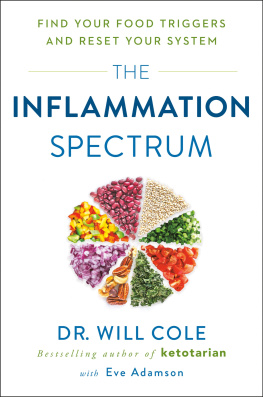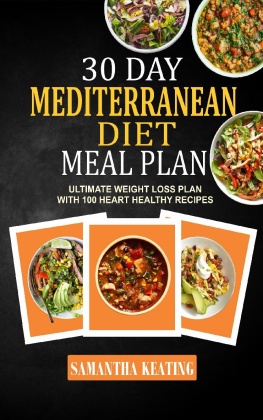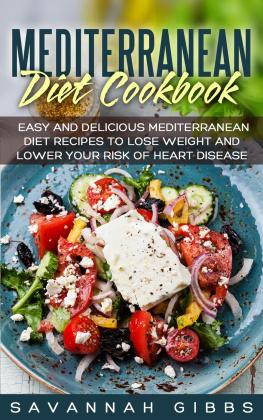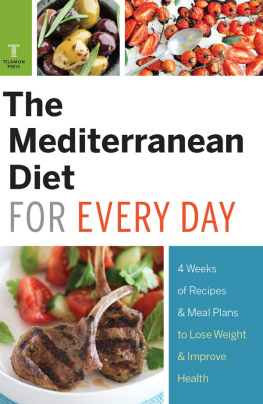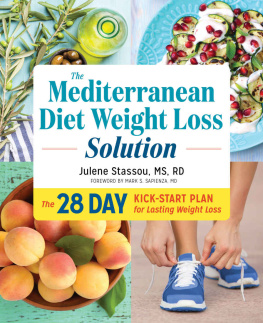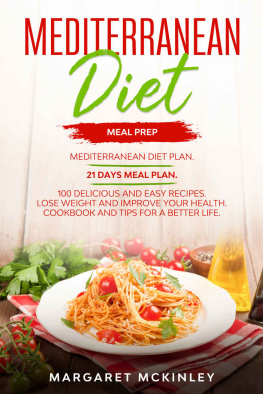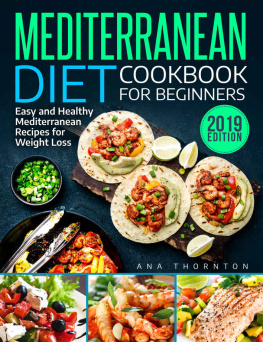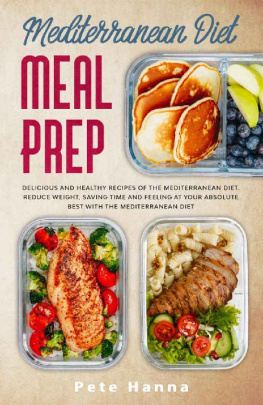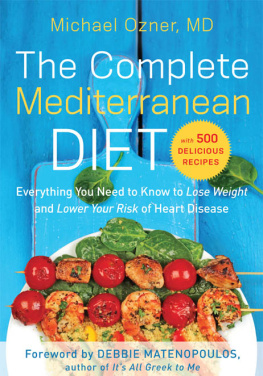This book is dedicated to Michael and Sophie.
Wishing you both good health and a long, happy life.
M. C.
and take their health into their own hands.
E. A.

If you grew up with a television set, youve probably seen the familiar scenario: a family gathered around the breakfast table, their plates piled high with eggs, bacon, sausage, maybe even a breakfast steak and a formidable stack of pancakes made with that ubiquitous box of handy biscuit mix. A bottle of maple-flavored syrup and a stick of butter (or tub of margarine) adorned the center of the table. A large glass of whole milk and a small glass of orange juice stood sentinel in front of every plate. A mother, coiffed and smiling, urged the family to finish the nutritious breakfast, that most important meal of the day!
One has to wonder how Americans got the idea that bacon and pancakes for breakfast made for a healthy meal. And what about dinner? Americas ideal dinner in the 1950s and 1960s consisted of a large hunk of meat and a baked potato with butter and sour cream, along with a stack of packaged white bread and butter and possibly a small bowl of iceberg lettuce and a few carrot shreds on the side, or a few spoonfuls of overcooked, heavily salted, buttered vegetables. We all thought this sort of home cooking made us strong and healthy, didnt we? Not to mention, we got pretty accustomed to that comfort-food taste.
So why on earth would we want to switch to unadorned, whole-grain cereal and fruit for breakfast, or salads and vegetable soups for dinner, with (the horror!) no cream and butter to help them go down? Why would we want to eat whole-grain bread when the neat white stuff is so cheap and readily available (and presliced!)? And why would we give up that big dish of ice cream, slab of cake, or wedge of apple pie la mode for dessert in favor of a bowl of fruit?
Then again, why would we want to eat in a manner that has made America one of the leading countries in the number of heart attacks per year? Surely Moms home cooking hasnt been killing us offor has it?
The irony of the situation is that while 1950s Americans were happily downing forkfuls of high-fat, highly refined fare in enjoyment of their prosperity, at the same time in history, the people living around the Mediterranean Sea, in regions less wealthy and with food budgets far lower, were eating what scientists and researchers have recently discovered is one of the healthiest ways to eat in the world. Today, as Americans struggle to retain or regain their coronary health, they are turning to the latest, cutting-edge research for guidance, and that research is pointing with increased frequency toward the traditional cuisines of the working class in the Mediterranean region as seen during the 1950s and 1960s and before. Sometimes, progress means looking backwardand, in this case, to another continent.
The problem is, Americans love their food, and arent quick to adopt any program, guideline, or advice that takes them away from their beloved burgers and fries. But lets give the traditional Mediterranean diet a second look. What is so special about the traditional Mediterranean diet? Why, for the past forty years or so, have researchers been excited about the traditional dietary habits of the people around the Mediterranean Sea? Arent eating habits from so many years ago outmoded today, when so many cutting-edge food products line our supermarket shelves? Isnt progress the name of the game? Those frozen dinners dont taste too bad
First, lets look at how Americans have developed their ideas about nutrition and what makes for a healthy meal. Without an understanding of how our own preconceptions developed, a change in diet probably wont be effective. Why do we eat what we eat? And how do we know what to eat now? What does the research say?
The Golden Age of Nutrition
In the early part of the twentieth century, nutrition science was in its infancy but growing fast. Many exciting and significant advances in nutritional knowledge were made between 1910 and 1960, particularly the discovery of specific nutrients and their biochemical relationship to human health. What was required to maintain health and support growth and reproduction? And what would happen when certain nutrients were missing? These were the questions that concerned nutrition scientists of the day.
During this period, scientists learned that without vitamin C, people develop scurvy; without vitamin A, night blindness. Vitamin D deficiencies lead to rickets in children, thiamin deficiencies to beriberi, niacin deficiencies to pellagra, and calcium deficiencies to stunted growth in children and osteoporosis later in life. Iron deficiencies lead to anemia, iodine deficiencies to goiter, and zinc deficiencies to growth failure in children. These conditions are classics in nutrition science today, and have all led to an understanding that a certain nutrient profile is necessary for health. The emphasis of research was on what might be missing from our diets that could compromise our health.
One significant example of this research emphasis was the work of several British investigators, including Corey Mann and Boyd Orr. In the first half of the twentieth century, these two researchers attempted to remedy the problem of why the working classes in northern England and Scotlandthe groups reproducing at a higher rate than the aristocracyseemed to be getting shorter and thinner. The government of Great Britain was concerned. Prominent was the notion that the lower classes were simply genetically inferior, but how could Britain compete in an increasingly global world as a colonial power if their very genetic stock was degenerating? Was there anything they could do to restore the working class? Was the answer within the realm of human control?
Mann and Orr embarked on an investigation to determine whether anything could be done to induce growth in short children. Sure enough, the results of feeding studies using short children as subjects revealed that feeding butter and sugar induced weight gain but no height increase; children fed milk or meat supplements, on the other hand, grew taller. The British working class wasnt genetically lackingit was malnourished! Public policy began to evolve in conjunction with farmers and social activists to provide milk in schools, milk and orange juice to pregnant and nursing mothers, and, once World War II began, milk and meat rations equally to all classes. Food production became a major priority for many nations, not just Great Britain. Avoid deficiencies was the battle cry.
Once the war hit and the possibility arose that the enemy might be able to prohibit the importation of food, food production and rationing took on an even greater importance. Great Britains agricultural policy shifted to emphasize the production of milk and meat to ensure the welfare of children, the nations future. Agricultural autonomy became a matter of national survival as well as national pride. Unfortunately, this meant that much of the farmland that was used to grow crops such as oats, flax, and winter wheat were cleared to support the increasing meat and dairy industry.

